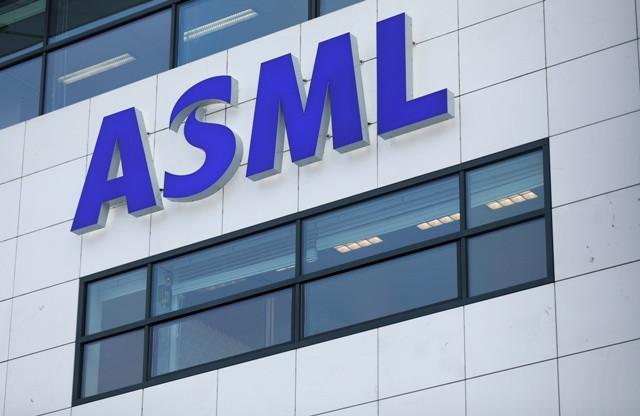Dutch semiconductor equipment maker ASML reported weaker-than-expected order bookings for the first quarter of 2025, citing rising uncertainty over U.S. trade tariffs that could impact demand for its chipmaking systems. The company posted net bookings of €3.94 billion ($4.47 billion), missing analysts' forecasts of €4.89 billion, and sending shares down nearly 5% in early trading Wednesday.
Net sales rose 46.3% year-over-year to €7.74 billion, falling slightly short of the €7.8 billion consensus. Net profit came in at €2.36 billion, ahead of expectations. Despite the order miss, ASML reaffirmed its full-year revenue guidance of between €30 billion and €35 billion, with second-quarter sales projected to range from €7.2 billion to €7.7 billion.
CEO Christophe Fouquet pointed to artificial intelligence as a continuing driver of demand but acknowledged mounting trade friction as a key risk. Tariffs "are creating a new uncertainty," Fouquet said. "This is a dynamic I think we have to watch very carefully." He noted that customer demand discussions for 2025 and 2026 suggest strength ahead, but warned that "uncertainty with some of our customers" could pressure the lower end of the guidance range.
ASML's CFO Roger Dassen highlighted four specific tariff-related threats: duties on shipments into the U.S., levies on imported materials for American facilities, and retaliatory tariffs on U.S. exports.
The U.S. Commerce Department on Tuesday opened a national security investigation into semiconductor imports, raising the possibility of additional trade restrictions. Meanwhile, conflicting statements from the Trump administration have fueled further confusion. Though electronics including semiconductors were temporarily exempted from new "reciprocal" duties last week, officials said over the weekend that exemptions may not hold, suggesting the goods were being moved to a separate tariff category.
Nvidia on Tuesday disclosed it expects a $5.5 billion quarterly charge due to U.S. restrictions on GPU exports to China and other countries. ASML, whose lithography machines are essential to advanced chip manufacturing, generates a significant share of revenue from Asia. In Q1, South Korea accounted for 40% of system sales, followed by China at 27%, and the U.S. and Taiwan at 16% each.
Quilter Cheviot analyst Ben Barringer said that while the implications of U.S. tariff policies are still emerging, the potential impact on ASML could be broad. "I think it's too early to really comment on whether ASML chooses sides," Barringer said on CNBC. "ASML will just want to support customers globally. They're everybody's production equipment."
ASML declared a total dividend of €6.40 per share for 2024 and repurchased approximately 4 million shares in the first quarter for €2.7 billion.




